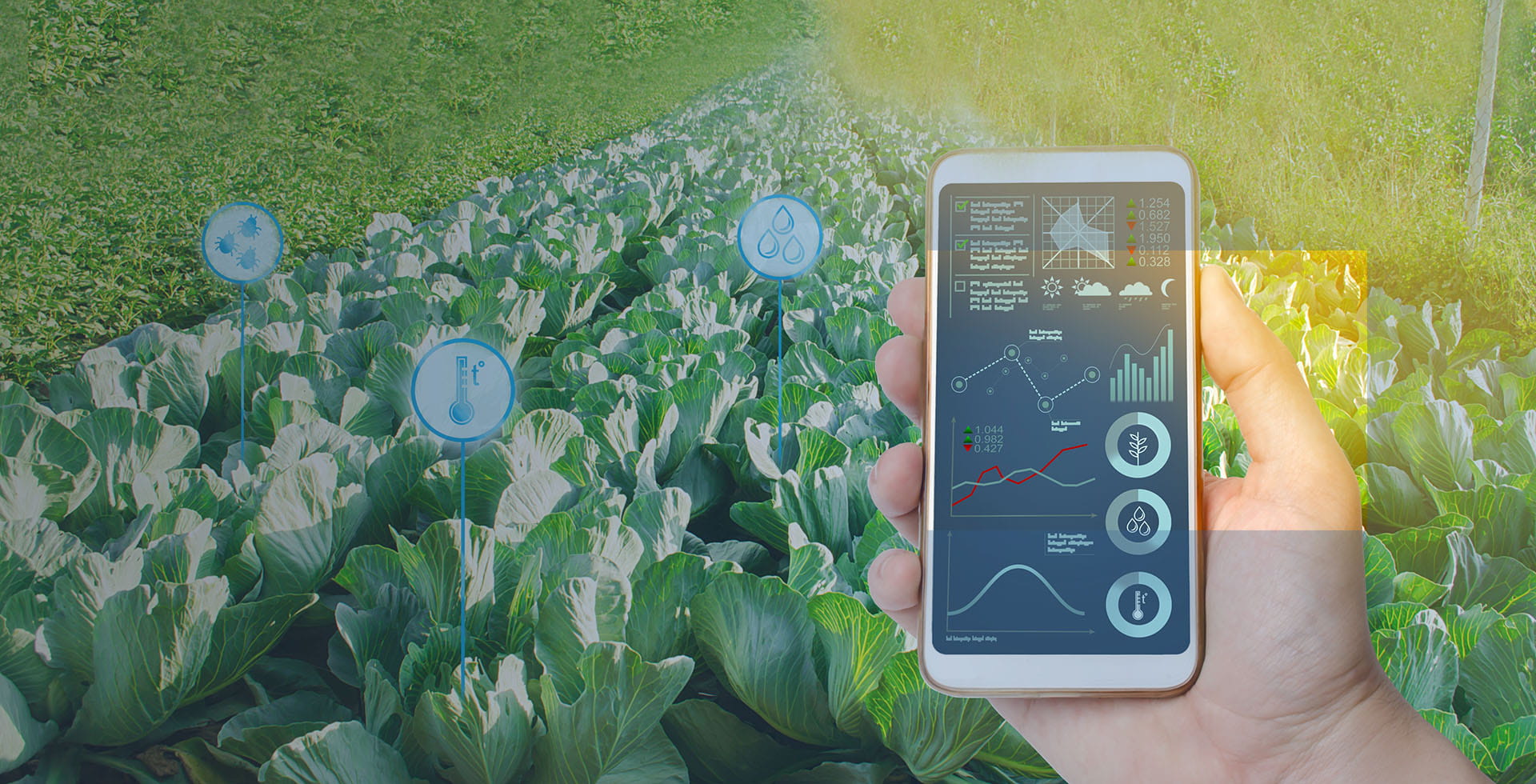
Zusammenfassung
In the US, 34% of Americans believe artificial intelligence (AI) will have a negative impact on humanity¹. Yet, this could not be further from the truth. In this series of two papers, with the first one focusing on the ‘green’ aspect and the second one, on the ‘social’ aspect, we will uncover how quietly, behind the curtain, AI not only is proving essential in promoting sustainability of our global economy, but could even ensure our human survival.
Part 1 of 2
|
|
Download the article here |
Our global population continues to grow. Emerging markets are developing at breakneck speed. With our increasingly ageing population expected to grow by 2 billion by 20502, access to better and cheaper healthcare will be crucial.
Who consumes the most energy?
India isn’t the only country that needed to address its pressing energy issues. The world is consuming more energy than ever. Most of this increase is coming from emerging markets and, in particular, from Asia where sustainability is an issue.
 |
Primary energy consumption is measured in terawatt-hours (TWh). Note that this data includes only commercially-traded fuels (coal, oil, gas), nuclear and modern renewables used in electricity production. As such, it does not include traditional biomass sources. |
Source: BP Statistical Review of World Energy (2019)
AI could help increase the supply of energy across the entire energy mix
Last year Exxon Mobil* partnered with Microsoft to use AI algorithms to interpret huge amounts of data created by millions of sensors that monitor their refineries all over the globe. By improving the quality of analysis and the enhancements that can be made to achieve greater operational efficiencies, Exxon Mobil expects to generate billions in net cash flow over the decade from this partnership. Overall, these types of AI applications could help the industry operate more efficiently and with fewer carbon emissions and ensure sustainability.4
AI will feed a growing and wasteful world
Rising incomes in emerging markets and growing urbanisation means the world is eating more and wasting more. Fortunately, agricultural companies like John Deere* have transformed themselves into artificial intelligence data-driven businesses that are dedicated to sustainability. Their goal is to protect crop yields from climate change, offer solutions that provide for population growth and help tackle security issues. Irrigation, weeding and spraying with the aid of sensors have been vastly improved. Plus, the excess use of water, pesticides and herbicides are being drastically reduced to protect the fertility of the soil and damage to ecosystems.7
|
“1.6 billion tonnes of food is wasted annually, which equals to one-third of the total amount of food produced globally.”8 |
By 2050, the average farm is expected to generate 4.1 million data points every day from a variety of sensors attached to farm equipment and drones, which are connected to a 5G network. This data rich environment is exactly what AI needs to add value. For instance, John Deere has already developed a cloud-based platform to collect data from these sensors so it can process AI algorithms. Models can then be built using data provided, which can optimise water distribution using automated irrigation systems.
Data collected by both drones and embedded sensors could also enhance weeding and reduce the use of herbicides and pesticides. Data collected on the amount of sun, shade and irrigation that weeds like could help farmers create an inhospitable environment for weeds, yet an environment where crops can thrive.
This would decrease the need of herbicides, which are expensive, pollute the environment and risk contaminating the food supply. It would also reduce the amount of waste the agricultural industry produces. Consequently, AI could save farmers money as well as protect the environment and support sustainability.
AI will help humanity recycle the right way
AI is a disruptive force that will completely transform the global economy. It could also provide the technological progress we need in developed markets to boost productivity, improve sustainability and restore robust levels of economic growth. The difference between past technological innovations, however, is that AI facilitates sustainability.
It could for instance, improve how we recycle and manage resources. Smart robots, sensors and vision systems are providing huge amounts of data that AI algorithms can use to improve recycling. These technologies will help speed up the rate and accuracy of sorting:
From human resources perspective, AI solutions remove the challenges of recruiting and retaining labourers for this unpopular task. They also help improve safety as workers often come into contact with hazardous materials.
AI could help feed and clothe humanity in the future by providing greater access to healthier food and energy to meet our living needs. It could also help us reduce the cost of recycling and further contribute to achieving a sustainable economy. Effectively, it plays a major role in saving humanity.
In our next article, we will look at how AI is fast-tracking progress in healthcare, education and driving the development of medical wearables.
Thematic strategies focusing on areas of structural change and growth, under competent management, have proven to be resilient to market downturns.11 The disruption from AI has only just started - annual investment into AI has grown 6x globally between 2015 and 201912 as it’s modernising industries, driving economic growth and even sustainability.
References
1 B. Zhang and D. Allan, "Artificial intelligence: American attitudes and trends," Centre of Governance of AI, future of humanity Institute, University of Oxford, Oxford, 2019.
2 United Nations – Sustainable Development Goals, Hunger, 2020
3 The Government of India – Central Electricity Authority, "Installed capacity," Central Electricity Authority, Dehli, 2020.
4 AI Trends Staff, "Oil & gas industry transforming itself with the help of AI," AI trends, 18 June 2020. [Online]. Available: aitrends.com/ai-and-business-strategy/oil-gas-industry-transforming-itself-with-the-help-of-ai/. [Accessed 05 September 2020].
5 M. Frank, "Can artificial intelligence in the energy sector help solve the climate crisis?," DW, 14 May 2019. [Online]. Available: https://www.dw.com/en/can-artificial-intelligence-in-the-energy-sector-help-solve-the-climate-crisis/a-48669209. [Accessed 05 September 2020].
6 Stanford University, "Artificial intelligence used to the supercharged battery development for electric vehicles," SciTechDaily, 22 every 2020. [Online]. Available: scitechdaily.com. [Accessed 5 September 2020].
7 T. Talaviya, D. Shah, N. Patel, H. Yagnik and M. Shah, “Implementation of artificial intelligence in agriculture for optimisation of irrigation and application of pesticides and herbicides,” Artificial Intelligence in Agriculture, vol. 4, pp. 58-73, 2020.
8 Food and Agriculture Organization of the United Nations, Global Food Losses and Food Waste, 2011; FAOSTAT database; BCG FLOW model. 2015 findings, in 2015 dollars.
9 J. Kite-Powell, "This Recycling Robot Uses Artificial Intelligence To Sort Your Recyclables," Forbes, 04 April 2017. [Online]. Available: https://www.forbes.com/sites/jenniferhicks/2017/04/04/this-recycling-robot-uses-artificial-intelligence-to-sort-your-recyclables/#36f317802d35. [Accessed 16 September 2020].
10 H. Britt, "AI Could Improve Sustainability Through Smart Recycling Sorting," Thomas Net, 2013 March 2020. [Online]. Available: https://www.thomasnet.com/insights/ai-could-improve-sustainability-through-smart-recycling-sorting/#register. [Accessed 16 September 2020].
11 A performance of the strategy is not guaranteed and losses remain possible.
12 https://www.venturescanner.com/2020/03/12/ai-2019-funding-achieved-banner-year/
*This is no recommendation or solicitation to buy or sell any particular security. A security mentioned as example above will not necessarily be comprised in the portfolio by the time this document is disclosed or at any other subsequent date.
Names, people and scenarios presented in this article are fictional and created, based on generally accessible facts or events.
Investing involves risk. The value of an investment and the income from it may fall as well as rise and investors might not get back the full amount invested. Allianz Global Artificial Intelligence is a sub-fund of Allianz Global Investors Fund SICAV, an open-ended investment company with variable share capital organised under the laws of Luxembourg. The value of the units/shares which belong to the Unit/Share Classes of the Sub-Fund that are not denominated in the base currency may be subject to a strongly increased volatility. The volatility of other Unit/Share Classes may be different. Past performance is not a reliable indicator of future results. Investment funds may not be available for sale in all jurisdictions or to certain categories of investors.
For professional investors in Europe (excluding Switzerland). For a free copy of the sales prospectus, incorporation documents, daily fund prices, key investor information, latest annual and semi-annual financial reports, contact the issuer at the address indicated below or www.allianzgi-regulatory.eu. Austrian investors may also contact the Austrian information agent Allianz Investmentbank AG, Hietzinger Kai 101-105, A-1130 Vienna. Please read these documents, which are solely binding, carefully before investing. This is a marketing communication issued by Allianz Global Investors GmbH, www.allianzgi.com, an investment company with limited liability, incorporated in Germany, with its registered office at Bockenheimer Landstrasse 42-44, 60323 Frankfurt/M, registered with the local court Frankfurt/M under HRB 9340, authorised by Bundesanstalt für Finanzdienstleistungsaufsicht (www.bafin.de). Allianz Global Investors GmbH has established branches in the United Kingdom, France, Italy, Spain, Luxembourg, Sweden, Belgium and the Netherlands. Contact details and information on the local regulation are available here (www.allianzgi.com/Info).
For qualified investors in Switzerland. For a free copy of the sales prospectus, incorporation documents, daily fund prices, key investor information, latest annual and semi-annual financial reports, contact the Swiss funds’ representative and paying agent BNP Paribas Securities Services, Paris, Zurich branch, Selnaustrasse 16, CH-8002 Zürich or the issuer either electronically or by mail at the given address. Please read these documents, which are solely binding, carefully before investing. This is a marketing communication issued by Allianz Global Investors (Schweiz) AG, a 100% subsidiary of Allianz Global Investors GmbH.
AdMaster: 1341370 | 20-2228

Zusammenfassung
He had been suffering from shortness of breath. The doctor said he was fine, but Markus was not convinced. Now in his sixties, he was concerned about catching the coronavirus. His doctor casually mentioned that there are some generally accessible devices that could help him monitor his vital signs. So, Markus went out and bought the latest smart watch from one of the top tech brands.













